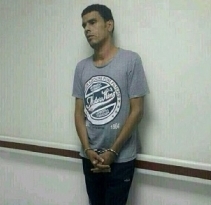(Ahlul Bayt News Agency) - The Bahrain Center for Human Rights expresses its concern for the deterioration of the conditions of prisoners in the overcrowded Bahraini prisons especially with the start of winter and low temperatures.Several families of the detainees at the (Dry Dock) Detention Center and the convicted at the Central Prison (Jaw) stated that the prisons administrations prevented them from admitting winter clothes to their detained sons, and it also prevented them from admitting heavy blankets for sleeping, despite their frequent attempts. Among them was the family of the nurse Ebrahim Al-Demistani which the prison administration prevented from admitting winter clothes for and it also prevented admitting his medicine for his disc treatment.According to the information received, the prison administration does not provide heating devices for the cells despite the prisoners repeated demands for it; prisoners are only allowed light blankets for sleeping that do not provide the required warmth. As to the bathing water, the number of water heaters available, and which are only 3 in the Dry Dock Prison, does not meet the massive number of prisoners. This forces the majority to shower in extremely cold water. Worth noting, both prisons lie close to the sea which makes temperature even colder.Besides that, the poor health condition of the detention centers in light of the overcrowded prison makes the prisoners easily vulnerable to cold diseases.Statistics indicate that there are approximately 3000 detainees which exceeds the capacity of prisons. In ward number 3 in the Dry Dock Detention Center there are 10 cells; each of these cells can accommodate 12 beds, however, in fact, six additional prisoners are forced to sleep on the floor because of the overcrowded cells. In some cells, there aren’t windows for ventilation at all.Similar complaints were received about the deteriorating health condition and poor ventilation in the Women’s Prison in Isa Town. The detained activist Zaynab Al-Khawaja stated that the prisoners are forced to keep the air conditioners on despite the cold weather because of the air stench.While the prisoners find themselves in an environment that fosters and transmits diseases, what increases their suffering is the lack of necessary medical care; the number of doctors and nurses in the prison clinic does not correspond with the immense number of prisoners, medication is not given according to each patient’s schedule, and prisoners are not allowed to read the instructions supplied with the medicine they are taking which drives some of them to refuse to take the medicine.On 19 December 2013, the father of the detainee Sajjad Al-Alawi stated that his son was suffering from a cold sickness because the cell had no window, and the fan that refreshes the air is broken. [i] He complained from the prison administration’s repeated refusal to admit changing clothes for his son for more than a month although they had taken out the old clothes. [ii] Sajjad Al-Alawi was not able to attend his court session on 23 December 2013 as a result of his illness.In January 2014 the detainee Salah Al-Khawaja’s was delayed for his scheduled visit in Jaw prison for more than an hour because of his request to be allowed to wear socks and shoes during the visit to avoid the cold, as he is infected with sickle cell disease and being subjected to cold weather could lead to a deterioration in his health. He was only allowed the visit after sufficing with wearing sandals and no heavy jacket.The neglect to take precautions against cold weather is not limited to inside the prisons; it even applies to the prisoners when being transported outside prison. The blind detainee Ali Saad was seen in light summer clothes in Salmaniya Medical Complex at a time when the temperature in Bahrain dropped to less than 18° C.What intensifies the sufferings of the prisoners’ families is that they are forced to wait for long hours in a queue in front of a room outside the prison building with no shading to take the visit dates. While the visit was weekly, the time between one visit and the other has become 11 days, and sometimes the visit is cancelled without prior notice. Several families mentioned that they are inspected in a humiliating manner before the visit begins, and they are only allowed to communicate with their detained relative through a glass partition from which you cannot always hear. During the phone calls from the prisoners to their families, the call is closely monitored, and the families can hear the prison guards cursing every time the political situation is brought up in the conversation.On 26 December 2013, the Ministry of Interior announced the death of one of the detainees as a result of an ailment. [iii] Amid the lack of independent investigation in these incidents and the lack of independent monitoring on the detention centers, the BCHR holds the Ministry of Interior the full responsibility for any death incident or any diseases the prisoners and detainees get subjected to.The Bahrain Center for Human Rights emphasizes the significance of the international conventions on the protection of persons subjected to detention or imprisonment, especially that, ‘All persons under any form of detention or imprisonment shall be treated in a humane manner and with respect for the inherent dignity of the human person’; it therefore calls on the US, UK, UN and all the regime’s close allies and relevant international organizations to pressurize the government of Bahrain to guarantee the rights of detainees and prisoners, especially the children, including:
source : BCHR
Monday
3 February 2014
8:30:00 PM
502856

Cells with no ventilation, deprival of winter clothes and no hot water
